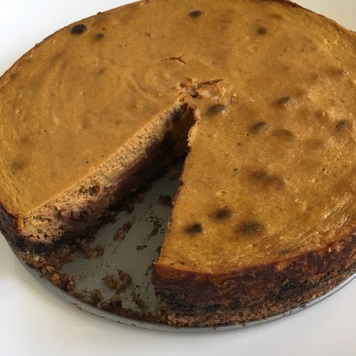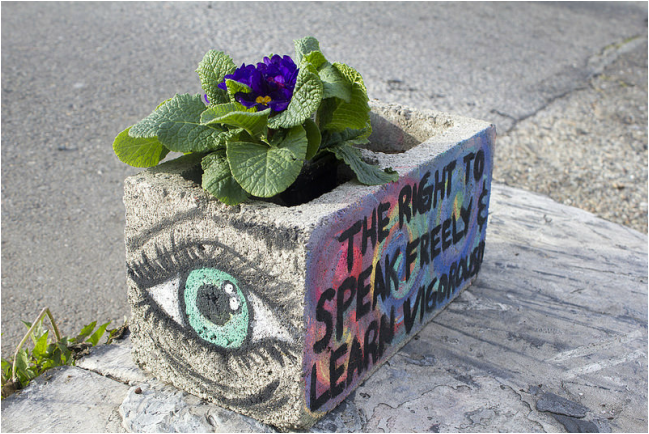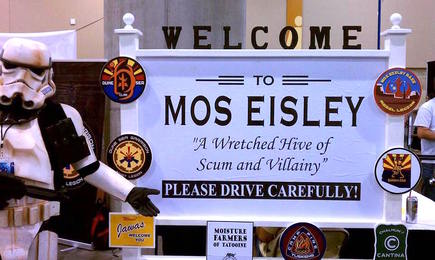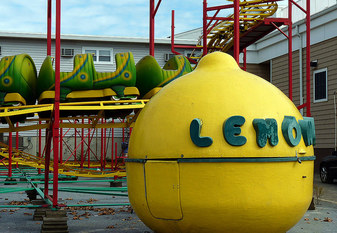The story was inspired by a family friend grieving the death of his wife after years of debilitating illness and his comment about being at a loss for how to fill up his days now that he no longer had to take care of her.
So, here it is. Seemed appropriate to give it a home here after my last post.
Housekeeping
Rose had scrubbed every floor, washed the walls, even polished the door knobs and faucets until they gleamed. There was nothing more to do.
Nothing.
Marty had been sick for a long time. First COPD--emphysema is what they used to call it, had been her first thought when he'd been diagnosed. Then the cancer. Not lung, surprisingly, but pancreatic.
The funeral home had picked up his body. The hospice folks had cleared out the hospital beds and IV poles and monitors. The medical examiner had been notified. Marty had chosen a no-frills pre-paid cremation plan years earlier. They'd had an estate plan and she knew where all the money was. The kids were planning the memorial service, which they'd scheduled for some time next month so extended family who lived out of state could afford the airfare.
There was nothing more to do.
The kids were trying to spare her any difficulties, trying to make the aftermath of Marty's death as easy for her as they could. It was a gift and she knew she should be grateful, but she wished they'd stop treating her like she was made out of glass.
A stream of friends and neighbors had reached out with casseroles and baked goods and the platitudes expected in a situation like this. He's finally at peace. His suffering is over. If there's anything I can do, let me know. You're in our prayers. Her answers were supposed to show bravery in the face of adversity. She was expected to grieve, but not too much. She wasn't supposed to make any major decisions.
She stuck to her script and the kids stuck to theirs and nobody noticed her looking around in confusion, unsure how to fill up her days. Unsure how to be alone.
The kids were around, it's not like they'd left her truly alone in the days since Marty's death. But they were always busy, always fussing with the details, always talking, never listening.
She knew they'd put together a schedule for calling to check in on her. Nobody had told her it was a schedule, but the phone has been ringing on or near the hour from nine in the morning until nine at night since Marty had died.
Rose stared at the clock. The two o'clock call should be coming in at any moment. By her calculation, it was Ellen's turn.
The phone rang. Rose waited two rings and then picked it up.
"Hi, Mom. It's Ellen. How are you doing?"
Rose smiled. "Hi, honey. I'm fine. How are you?"
"Jared picked up a cold at day care and now everybody's sick. Put that down this minute or you're going in time out."
And the call continued in a similar vein for the next three minutes. Ellen would say something to Rose immediately followed by something to Jared.
"Can you stop by?" Rose asked. "Or I can come over. I don't care if Jared's sick. I could babysit for you."
"Oh, Mom, no. You've been through so much. You need to relax. You don't need a sick child on your hands. I just wanted to check in and see how you were. Gotta run. Love you!"
And she was gone.
Rose hung up the phone and looked at the clock. Fifty-seven minutes until the next call, which would be from Jim. The one after would be from Cathy.
"I had your sick father on my hands for ten years," she said to the sparkling, but empty, kitchen, "I think I can handle a toddler with a cold. And I'm talking to myself. Great."
She thought about turning on the TV. In the last few years, Marty had always had the TV on.
Always.
There were times back then when she'd have given anything to stand alone in a kitchen she'd finally had time to clean properly, absorbing the silence, like a plant absorbed sunlight.
But now she had it, and she wasn't sure what to do with it.
But the quiet was nice. So nice not to have the television blaring.
Marty's death had been a relief to Marty and to her. She loved him. She had from the first time they'd met. It was the disease she hated, she'd had to remind herself on those days when she wanted to smother him with a pillow. And now the disease was dead and Marty was finally free.
She knew that. She had no doubt that he still existed somewhere, in some form. She wasn't religious and she wasn't clear on the details of what that existence might be. But she knew it. And she felt comfort in knowing she knew it. If it turned out to be an elaborate self-delusion, so be it.
But wherever he was, he wasn't here.
Rose wandered through the house looking for anything she might have missed. A stray sock, a fingerprint on a mirror, a dust bunny hiding in a corner. But the house was pristine.
She'd even boxed up Marty's clothing and prescriptions and medical devices and put them all in the den. There was a man Marty's hospice coordinator had told her about, who would accept clothing and anything medically-related and take it down to Mexico and distribute it to the poor. They didn't care if the nebulizer had been used or the pills had been prescribed to somebody else.
Rose hadn't called him yet. The packing had kept her busy, gave her something to do next. For a little while at least. But she was in no hurry to get rid of anything.
Everyone said she needed to give herself time. To remember who she was.
She was a caregiver. Always had been, or at least she'd thought so once. If you'd asked her ten years ago, she would have said the same thing. She'd taken care of her kids, and she'd taken care of her husband. But she'd had no understanding back then what it really meant to take care of someone.
As babies, the kids had been even more helpless than Marty had eventually become. But babies were cute and all of Rose's babies had grown increasingly more independent until they no longer needed her.
For anything.
The momentary anger that accompanied that thought startled her. Wasn't that the inevitable end game of successful parenthood? Children who no longer needed you?
The hospice coordinator had also told Rose about a grief support group she could attend. But Rose had not called that number either. She felt a bit like a fraud. She'd done her grieving while Marty had been alive. Now, she mostly felt relief.
Rose hadn't cried. The kids assumed it was because she was in shock, but she suspected that she had no more tears to give.
She realized she'd lost her original train of thought. What had she been thinking about?
Why taking care of Marty was harder than taking care of babies.
Rose nodded. "Because babies get easier over time. Marty got harder." She was talking to herself again. "This is why people get cats," she said to the spotless empty living room.
Except Rose was allergic to cats. They'd had a dog, Rusty, when the kids were young, but Rusty had been hit by a car, and the kids had been so devastated by it that she and Marty agreed. No more dogs.
"And maybe," she said, to her reflection in the powder room mirror, "that's why the kids are sticking to the platitudes. We never taught them how to grieve."
Because we didn't know how to do it either. Rose didn't have any insights in how to handle this, now that she was supposed to be doing it.
Maybe if I'd cried over more lost dogs, I'd know how to cry for a lost husband.
She made her way upstairs. She felt the lack of Marty less up here. He'd been living on the first floor for the last two years. When his breathing had gotten so bad he couldn't climb the stairs, they'd turned the den into a bedroom.
He'd been diagnosed with cancer right after Christmas, and after a couple of months their marriage bed had been replaced with a hospital bed and Rose moved back upstairs. The first few nights, sleeping alone for the first time since she'd been married, she'd stared at the ceiling for hours before drifting into fitful sleep.
It had been too quiet, the sounds wrong, the bed too big. Then, and she couldn't have said why, something changed. The fourth night she had rolled into the middle of the bed and moved her arms and legs around, testing the space.
There was so much room. And the quiet was no longer oppressive, but soothing. She fell asleep quickly and slept straight through the night, something she hadn't done since before Ellen, their oldest, had been born.
Rose stared at the bed. I could take a nap.
The idea seemed as exotic to her as a trip to China or India. Somewhere foreign and distant and totally unfamiliar.
Rose glanced at the bedside clock. She had a good forty minutes before Jim called at three. She looked around furtively, a giggle escaping her lips as she kicked off her shoes.
I'm taking a nap in the middle of the day. Because I can.
She stared at the bed. Under the covers or on top of the bedspread? On top, she decided, with the afghan handy if she got cold. She glanced out the window. It was a soft gray day, in late spring, the rain pattering gently on the roof.
Marty's COPD had forced them to keep the windows, all the windows in the house, closed. Pollen, dust, mold--anything could set him off.
Rose stared at the window for a moment, then marched over to it. She unlocked it and pushed on the sash. It resisted a moment from being closed for so long, but finally yielded. She looked inside the dusty window sill. There's a project for when I wake up.
If the other windows were as bad, then all the sills needed to be vacuumed and washed. But she decided it could wait.
The fragrant spring air flowed into the room. The lilac hedge at the back of the yard was blooming. A memory sprang into her mind. The kids running around the yard while she and Marty sat on the patio, drinking beer, as the scent of the lilacs washed over them.
He grinned at her, a cigarette burning between his fingers. "Still think we shouldn't have bought this house?" he asked. Laughing, she threw a cardboard coaster at him on her way into the kitchen. He grabbed her arm and pulled her onto his lap and kissed her until she kissed him back, the kids and dinner forgotten for a few stolen moments.
A faint rumble of thunder brought her back to the present. She felt the tears slip down her cheeks, the first tears she'd shed since Marty had died. She'd forgotten how handsome he'd been once upon a time, before the smoking had taken its toll. Before his hair had turned white and his eyes had grown dull. Before having to fight for every breath eroded his hope and destroyed his vibrant wit.
Before the disease she hated took the man she loved.
Rose pulled a tissue from the box on the bedside table and blew her nose, but her eyes stayed dry. The sadness had been a momentary flash, gone as quickly as it came. But the memory remained. She was grateful for that.
Finally settled on the bed, Rose closed her eyes. A moment later, it seemed, the phone rang. She sighed in exasperation, then looked at the clock. It was three.
She fumbled for the bedside phone. Yawning, she said hello.
"Mom, are you okay?" Jim asked, worry in his voice.
She yawned again. "I'm fine. I was taking a nap."
Jim paused a moment. "A nap?" he finally asked. "What's wrong? Are you depressed? Are you upset? Do you need someone to come over?"
Rose laughed. "I'm fine. I'm not depressed. I'm just sleepy."
“Daytime sleepiness is a sign of depression. I want you to see Dr. Phelps."
"Who's Dr. Phelps?" She yawned again and stretched. Another wave of lilac blew into the room on the soft spring air.
"A friend of mine," Jim said, his voice sounding tense. "A psychiatrist. He can do an evaluation and put you on the appropriate medication."
Rose snorted back a laugh. "I'm taking a nap. I'm not standing on a chair with a noose around my neck. I'm not depressed. I'm quite enjoying myself actually. Do you know how long it's been since I've been able to just take a nap?"
"I'm coming over, Mom. You're in denial. You need to process your grief."
Rose felt a flash of anger, but let it fizzle. You should have gotten them another dog. "I'm not in denial, and I am processing my grief. But if you want to come over, I could use your help."
"Anything, Mom," Jim said. "Whatever you need."
"I just opened one of the bedroom windows. The sills are a mess. Dirt, dead bugs. You vacuum and I'll wash. How does that sound?"
"Vacuum?" Jim said the word like he'd never heard it before.
"Yes, honey. You know--the big loud thing you push around the room that cleans the rug?"
He sighed, not quite able to keep the annoyance out of his voice. "Yes, Mother. I know what a vacuum is. But are you sure, so soon after . . ."--his voice dropped almost to a whisper--"Dad has gone away?"
Definitely needed another dog. "Dad hasn't gone away. Dad has died. You can say it. I won't collapse into a trembling heap."
"Keeping a stiff upper lip is one thing, but--"
The anger returned. "Jimmy, sweetheart, I appreciate your concern, I really do, but can you kids please stop talking like sympathy cards? I've been watching your father die for many years now. The COPD was always a death sentence. He knew it and I knew it. The cancer diagnosis was a relief for both of us. I'm not going to break. If I was that fragile I would have broken years ago. I'm not depressed and I'm not seeing a psychiatrist and I'm not taking medication."
"But--"
"Having that sick old man gone has let me remember the guy I fell in love with. Cleaning makes me feel better so if you want to babysit me, fine, but I'm putting you to work on the windowsills." She paused to take a breath. "And I think I want to get a dog."
Jim gasped. "Mom, don't do . . . don't make any decisions until I get there."
"Bring a bottle of wine," Rose said. "Red."
"Wine?" Jim sounded like he was about to have a stroke.
"Yes. Wine. Gigi, from next door, brought over a lasagna yesterday. Gigi makes great lasagna. I'll make a salad. You got a new girlfriend yet?" In Rose's mind, she saw young Marty sitting on the windowsill, trying not to laugh.
"Do I have a . . . girlfriend?" Jim asked, his voice weak.
"Sure. Or a boyfriend. I don't judge. If there's somebody you'd like to invite to eat lasagna with us, bring them along."
"Mom, I'm calling Ellen."
"I'm not sure there's enough lasagna for her whole gang, but the fridge is full. There's plenty to eat. See you soon.”
Rose hung up and then burst out laughing. She caught another whiff of lilac and then decided it was time to get up.
Back downstairs, she stopped on her way to the kitchen and looked into the den.
Open the windows, Rosie. Young Marty appeared in her mind again. Get the sick old man smell out of here.
Rose smiled and pushed up the window. There were no lilacs in the front of the house, but she could smell grass and earth and rain.
She moved through the house, throwing open the windows, reveling in the different scents that poured in, ignoring the filthy windowsills but grateful for them too. When whatever this was that had seized her ebbed away, when the house grew empty and too quiet again, and she wondered what she should do next, the windowsills would be waiting.
Windows opened, Rose wandered into the kitchen. She pulled the lasagna out of the fridge. She'd been planning to cut it up into single servings and freeze them, but this would be better. She'd eaten enough sad frozen meals on the nights Marty had been too sick to eat.
"No more frozen dinners," she said.
The lasagna was already baked so all she had to do was heat it up. No point in doing that until Jim arrived, with Ellen and probably his Dr. Phelps in tow.
Appropriate medication. She snorted in disgust. Sadness wasn't depression. She'd watched Marty go through depression. It hadn't made him sad. It made him disappear. She pictured young Marty sitting at the kitchen table, eagerly tucking into a plate of food.
Another tear slipped down her cheek. But it was okay. It was like ice melting, winter receding drop by drop.
Rose went back to the fridge to see what else she could serve if Ellen dragged her family along. She still had half a pan of mac and cheese from Susie across the street, and some ham Cathy had brought over. And the cake from the Marzettis, who lived next door to Susie. Plenty to eat.
As she shut the fridge door, her eye was drawn to the neon green Post-It note she'd gotten from the hospice lady, with the name of the donation guy on it. Kevin, was his name. She thought about the boxes in the den. Was it time get rid of them? Was there any reason to wait?
Her good mood abruptly shifted. Marty--that was all she had left of him. She sat at the table and the tears came. This was no gentle drip. This was a flash flood. The tears she thought she didn't have roared out of her. She sobbed like a small child.
It was all over in less than a minute. Rose pushed herself to her feet and went into the powder room. She blew her nose, rinsed her face, and smoothed down her hair. She was sixty three years old. She was a widow.
"And I'm going to be okay," she told herself in the mirror.
Leave the boxes for now, she imagined young Marty saying. Whatever you need to do, Rosie.
She nodded at her reflection and headed back to the kitchen to heat up the lasagna.
Copyright 2018 Laura Kirwan













